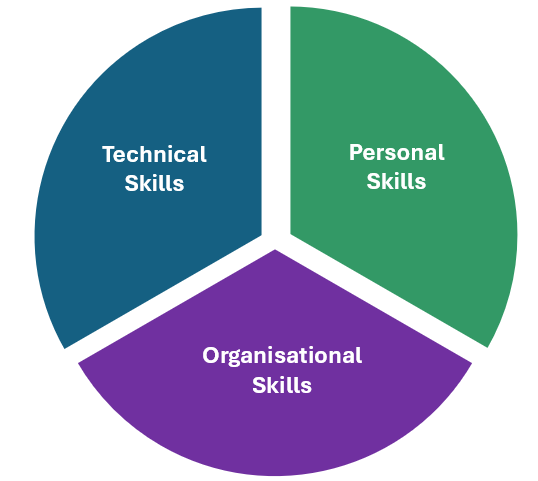Data Literacy is dead. Long live Data Literacy.
What's the point of data literacy in the age of AI?
Having spent the better part of eight years working exclusively in data and AI enablement, I often have been asked to define and then justify data literacy. This has come from employers, from colleagues, and from various posts on LinkedIn declaring the ‘death of data literacy’ due to AI making it redundant. Nothing could be farther from the truth. Data literacy is more critical now, not only for AI, but to have a greater understanding of every aspect of our data-connected lives.
The issue, as far as I’ve observed, is one of defining what we talk about when we talk about data literacy, and how it impacts not only individuals, teams, organisations but society overall.
This week let’s explore how to define data literacy.
At a conference in 2019, I was very excited to hear a presenter when they said they had achieved 100% data literacy across their multi-thousand workforce that was distributed nation-wide. That sounds amazing – and here is how they achieved it.
They created a single eLearning module course that covered topics including:
Difference between structured & unstructured data
Simple data visualisation
And made it mandatory for all employees to complete.
That is a fantastic solution – there isn’t enough mandatory eLearning modules in the world, and I’m glad they are doing their part! (Editor’s Note: please note the heavy sarcasm from a recovering mandatory eLearning module creator who is repentant for the suffering caused).
Ignoring my personal gripes with the delivery method, the issue I have with this interpretation of data literacy as entirely technical, is that is narrows the scope of data literacy, and is also highly irrelevant for a vast majority of team members.
Data literacy should be the combination of relevant technical, personal, and organisational skills that provides context, builds confidence, and enables the individual to understand their role in the data lifecycle.
One person’s data literacy needs and proficiency is going to differ from another.
When people think about literacy, people often consider and compare to the acquisition and use of language.
I’m a big fan of approaching data (and AI) literacy as a language. Some people only need to know the Duolingo introductory words such as hola, こんにちは, la bibliothèque, or bonjour. Others will need specific domain knowledge, and learn to use zygodactyl, Chiffonade or shoebill.
Taking this approach, while we all need to learn our A B Cs (or Á β Çs), learn about verbs, nouns, adverbs, and how to form sentences. A language is so much more than that. So too is data.
With this approach, achieving 100% data literacy becomes increasingly unobtainable – as it should, and realistically shouldn’t even be the goal.
Data literacy is a passport.
Data - like languages - continuously evolve, in many ways faster, and less predictably. Like some of my very talented bilingual friends, you can learn several ‘languages’ of data - you can fumble your way through ordering a ‘data latte’ in a French café, trying to remember your Year 9 French class, or you can immerse yourself in the culture, travel, literature and food, to gain a better understanding of the essence of the language. But data isn’t just a singular language, data (and AI) is a continent.
Data is Europe, or Africa, or Asia.
With so much speciality, the speed the industry grows and innovates, let me confirm for you – it is impossible for anyone to become fully data fluent, and understand the whole of the data domain.
Achieving data literacy or fluency should instead be two-fold:
Being aware of and having sufficient confidence when interacting with your data. Knowing what to pack, and knowing what sights to expect to see in the country you are visiting.
Being aware of what you don’t know about data – but knowing the right tools or resources available to help bridge the gap of understanding. Have the right guides, maps and phrasebooks.
This moves data literacy from an unobtainable benchmark to a mindset. Now a mindset, that’s much easier to achieve.
A mindset that requires curiosity, humility, and critical thinking.
To be data literate enables you to be a conscientious traveller. To become aware of the cultural norms, the tourist traps, the hidden gems.
If you’d like to share this with your colleagues or friends, I would be eternally grateful, as I’d like to make this conversation as diverse and engaging as possible.
Thank you for joining me in this exploration of data & AI from what (I hope) is perhaps a slightly different perspective than you may usually hear from.
Yours in data,
Neil


